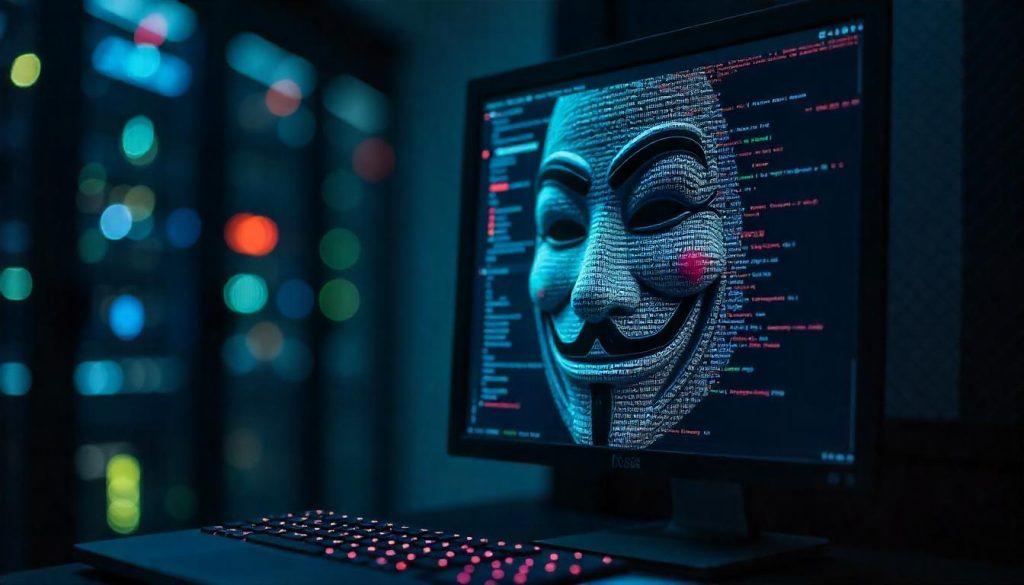Anonymous, the famous hacktivist group recognized by the Guy Fawkes mask, has made a name for itself through online activism and cyber operations. One of their loudest and clearest messages over the years is their support for freedom of speech. But how deep does that support go? Let’s break it down.

The Belief That Knowledge Should Be Free
Anonymous is driven by the core idea that information should be open to all. They believe that knowledge gives power to people. When governments or powerful organizations try to hide facts or censor opinions, Anonymous often sees it as a direct attack on freedom. The group has repeatedly fought back against restrictions that limit public access to information. For Anonymous, controlling information means controlling people — something they strongly oppose.
Giving a Voice to the Silenced
Anonymous often takes action when they see people being silenced. A good example is the Arab Spring. Activists in countries like Egypt and Tunisia were trying to speak out, but many governments shut down internet access. Anonymous stepped in to help protesters stay online and spread their message to the world. Even in democratic countries like India, Anonymous has launched campaigns against internet censorship. Their protests made headlines and showed their determination to protect everyone’s right to speak and share freely.
Big Operations Against Censorship
Over the years, Anonymous has launched several major campaigns to fight censorship and protect digital freedom:
-
Operation Chanology (2008): Targeted the Church of Scientology for removing critical content online.
-
Operation Payback (2010): A campaign against anti-piracy groups and companies trying to restrict file sharing.
-
Operation Blackout (2012): Fought against SOPA and PIPA — two U.S. bills seen as threats to internet freedom.
These actions show Anonymous’s consistent pattern of fighting back when they feel free speech is under attack.
No Leaders, Just Shared Values
One of the most unique things about Anonymous is its structure — or lack of one. The group has no leaders. Anyone can join as long as they agree with the ideas. This open structure fits perfectly with their belief in free speech. By staying anonymous, members can act without fear and focus only on the cause. Their identity doesn’t matter. What matters is the message.
Challenging Those in Power
Anonymous believes transparency is key to justice. They often go after powerful groups that hide the truth or restrict free expression. Through hacking and data leaks, they have exposed corruption, injustice, and lies. Their goal is to show people what’s really going on behind the scenes. When freedom of speech is blocked, Anonymous often sees that as a warning sign that bigger problems exist.
Going Global for a Global Right
Freedom of speech isn’t just a problem in one place. It’s a global issue. That’s why Anonymous operates all over the world. They’ve supported activists in places like:
-
Turkey, where they protested strict internet laws.
-
Hong Kong, where they stood with pro-democracy demonstrators.
-
Africa, where internet shutdowns during elections have triggered Anonymous campaigns.
They believe free speech belongs to everyone, no matter where you live.
Controversial Tactics — Necessary or Harmful?
While many people agree with Anonymous’s message, their methods often raise eyebrows. They’ve used DDoS attacks, website defacements, and data leaks to make their point. Some critics argue that these actions are illegal and hurt innocent people or systems. Supporters, on the other hand, say this is digital protest — a modern way of standing up to those with power. In their eyes, Anonymous isn’t a threat to free speech — they are a defense mechanism against censorship.
Final Thoughts: A Fierce Defender of Digital Expression
So, does Anonymous support freedom of speech? Absolutely — it’s one of the key values they fight for. Their operations, philosophy, and global presence show a clear and ongoing effort to protect the right to speak, share, and challenge authority. Even if their tactics remain controversial, their support for free speech is undeniable. In a world where censorship is growing in many places, Anonymous remains a powerful — and often loud — voice pushing back.